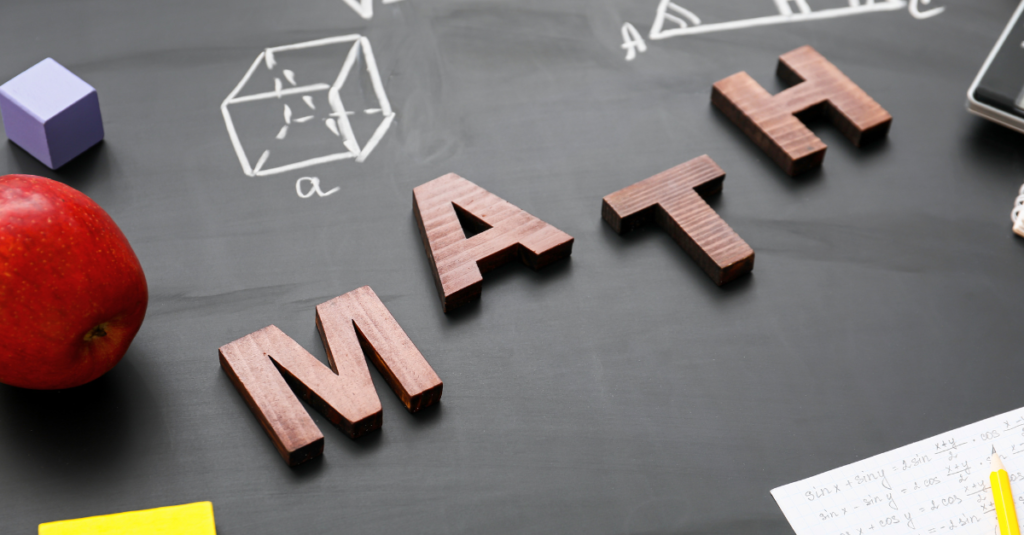The notion of chance and likelihood is introduced to pupils in the IGCSE Maths syllabus for grade 8through the topic of probability. First, they learn that probability is a measure of the likelihood that an event will occur. The groundwork for more difficult concepts in later grades is laid by this.
IGCSE Maths Syllabus for Grade 8: Probability
As they advance, students investigate various results from straightforward actions like rolling a die or flipping a coin. Students gain the ability to assess the probability of these occurrences and to state their conclusions using adjectives like “certain,” “likely,” and “unlikely.” As students analyze real-world scenarios, this strengthens their ability to reason.
Students then investigate how probability might alter when numerous occurrences occur simultaneously by mixing distinct events. They get an intuitive understanding of how various elements impact probability and are able to comprehend how specific conditions could alter outcomes with IGCSE Maths syllabus for grade 8.
At this point, students start to use charts or simple probability diagrams to visually depict probabilities. They are able to see potential results more clearly and abstract concepts become more tangible as a result. Students will have a firm grasp of fundamental probability principles by the end of IGCSE Maths syllabus for grade 8, which will be built upon in subsequent years.
IGCSE Maths Tutor Online: Grade 8 Number Theory
A strong foundation in mathematics requires an understanding of number theory. It covers ideas like fractions, decimals, and integers, enabling students to have a solid understanding of how numbers function. As they advance in their studies, students may confidently tackle more difficult mathematical problems because to this foundation.
In order to better understand ideas like prime factors, greatest common factors, and least common multiples, students will investigate the relationships between numbers. Mastering these notions helps learners comprehend how to simplify issues and discover answers effectively. Students improve their problem-solving abilities, which are essential for success in subsequent IGCSE Maths tutor online, by exploring these links.
Students will also study proportions, percentages, and ratios—all of which are essential for real-world applications. Gaining an understanding of these ideas enables students to make sense of commonplace scenarios like price comparison and budgeting. Their ability to solve problems in everyday life is enhanced by this useful information, which also helps them become stronger mathematicians.
IGCSE Maths tutor online may make learning number theory interesting and pleasurable by emphasizing interactive learning. Students can advance at their own speed by receiving individualized training and practicing at their own leisure. They develop self-assurance and a love of mathematics in this encouraging atmosphere, which will help them in their academic endeavors.
IGCSE Maths Online Tuition: Grade 8 Geometry
In order to improve problem-solving abilities and spatial awareness, eighth graders must comprehend geometry. Students investigate the characteristics of different forms, such as circles, quadrilaterals, and triangles. This fundamental knowledge makes studying relevant and interesting by improving real-world applications like architecture and design in addition to helping students succeed academically.
In IGCSE Maths online tuition, students explore into concepts like angles and symmetry, understanding how these aspects interact inside different designs. To further their comprehension of geometric connections, they also study transformations like rotations and reflections. Through this inquiry, students may effectively comprehend and manipulate forms while also being encouraged to think critically.
As they advance, students work on real-world applications of geometry, such figuring out area and perimeter. Students gain the ability to relate abstract ideas to real-world scenarios, such figuring out how big a space is or how much material is needed for a project. This practical application strengthens their comprehension and ignites a passion for arithmetic.
In the end, becoming proficient in geometry in IGCSE Maths online tuition prepares students for future study of more difficult subjects. Students may interact with these ideas online, study at their own speed, and get individualized guidance by using a range of tools. This adaptable learning atmosphere boosts self-assurance and guarantees a strong mathematical basis for further research.
IGCSE Mathematics Syllabus: Grade 8 Mensuration
The measuring and computation of various geometric figures are the main topics of mensuration in the IGCSE mathematics syllabus. Pupils acquire the ability to calculate the area and perimeter of geometric forms like triangles, squares, and rectangles. Later in their studies, this fundamental knowledge will be crucial for comprehending increasingly intricate forms and spatial connections.
The curriculum presents cubes and cylinders as examples of three-dimensional figures in addition to two-dimensional shapes. Students learn how to compute their volume and surface area, which is useful in practical situations like building and packing. This practical method helps students grasp these ideas more deeply and how they apply to real-world situations.
Gaining problem-solving abilities is an important part of learning mensuration. Students are challenged to apply their knowledge in many circumstances through hands-on experiences. This strengthens their general mathematics knowledge by improving their critical thinking skills and helping them to visualize the dimensions and relationships between different forms using IGCSE mathematics syllabus.
In the End,
The syllabus’s mensuration section gives students essential knowledge and abilities for both practical applications and further coursework. Understanding measurement is vital not only in mathematics but also in domains such as engineering, architecture, and design. The framework for more complex ideas discovered in subsequent grades is laid by this early exposure.
Mensuration is a key component of the Grade 8 IGCSE mathematics curriculum, since it aids pupils in understanding measurement and geometry. Students study the computation of surface area and volume of three-dimensional forms, as well as the area and perimeter of different two-dimensional shapes, via interesting lessons. Their ability to solve problems is improved by this knowledge, which also gets them ready for real-world applications. Students at Eclassopedia may develop a solid foundation in mensuration that will benefit their future studies in mathematics and related subjects by placing an emphasis on critical thinking and visualization.






